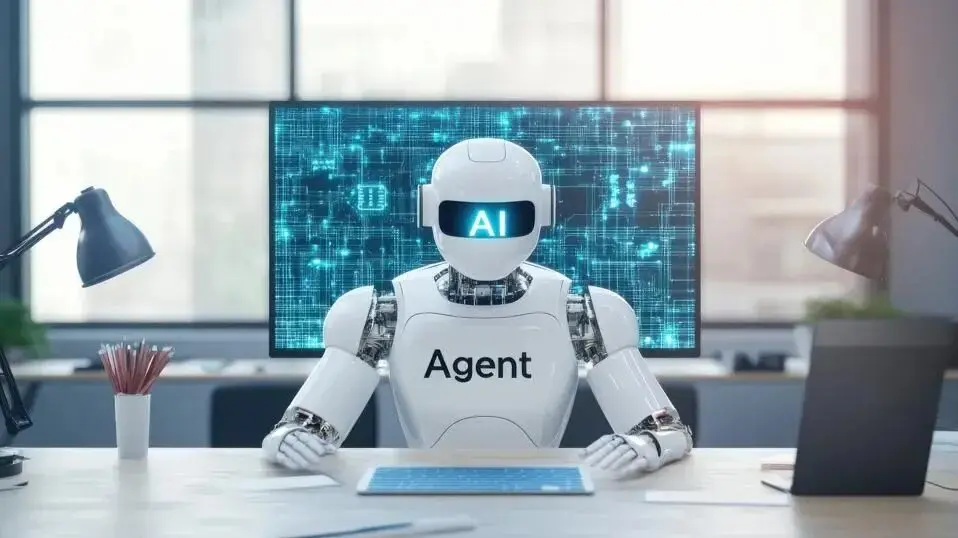
Sign up for breaking news, reviews, opinion, top tech deals, and more.
You are now subscribed
Your newsletter sign-up was successful
Global trade is undergoing a silent revolution. While most headlines scream about geopolitical tensions and trade barriers, the real revolution is happening in the mundane, decades-old business workflows that once suffocated small and midsized businesses.
From real-time language translation to effortlessly sourcing international suppliers, new AI agents are giving SMBs the ability to function as if they were multinational corporations—at a fraction of the budget and size.
President of Alibaba.com.
How prevalent will AI usage be among SMBs? Well, according to our most recent research, more than 63% of entrepreneurs have plans to incorporate AI tools to bring their product to global markets and address real-world needs. Here are three ways that agentic AI is rewriting the rules.
1: The agent-powered workflow
Global business is entering a new age of the agent-powered workflow. Unlike simple tools that execute single tasks, modern AI agents are workflow orchestrators that can simultaneously manage multiple processes from start to finish.
For a small business trying to enter a number of new global markets, a multi-modal AI system can automatically generate product catalogs in 12 different languages using natural language processing and image recognition, monitor global shipping routes in real-time to avoid customs delays, and even negotiate pricing with suppliers via AI-driven contract templates.
These aren’t just pie-in-the-sky what-if scenarios. Startups are already offering these capabilities for under $100 per month.
Pretty soon, agentic AI will be able to handle the entire global supply chain process, from comparing millions of suppliers, selecting the best ones for your business, managing communications, to overseeing the purchase and delivery of goods.
Sign up to the TechRadar Pro newsletter to get all the top news, opinion, features and guidance your business needs to succeed!
2: The AI-first era has arrived for B2B
Since the inception of global trade, certain barriers that have been constant for the $30 trillion industry: language gaps that make negotiations difficult or impossible, lack of local market knowledge that puts new players at a huge disadvantage, and the sheer difficulty of verifying partners that are based thousands of miles away.
To make the matter worse, a typical procurement cycle involves 17 stakeholders and 90-plus days of back-and-forth.
These are exactly the kinds of problems that agentic AI was built to solve. An AI agent can simultaneously analyze 50 supplier proposals, check compliance, and generate responses. AI also reduces human bias.
Machine learning models trained on 10,000-plus B2B contracts can identify risk factors humans might miss, predictive analytics can forecast demand spikes and automatically adjust inventory levels.
3: New skillset requirements for entrepreneurs
The rise of AI is changing the skills entrepreneurs need to succeed. While an MBA was once the gold standard, what entrepreneurs really need these days are practical AI skills such as knowing how to talk to AI tools to get precise results.
It’s also important for entrepreneurs to develop “AI literacy” so they can evaluate which models are right for which jobs. Just as critical is the ability to cultivate digital aesthetics. This is all about knowing when to trust AI-generated outputs vs. when to lean more heavily on human creativity.
Think of AI as a tireless co-founder. It allows even the smallest teams to produce massive amounts of work, finally giving SMBs the tools they need to compete at a much larger scale.
This year alone, 42% of B2B decision-makers are actively using or implementing AI agents in their B2B buying and selling processes.
The question isn't whether SMEs should adopt AI—it’s which tools will ultimately become indispensable.
We have only just begun to scratch the surface of the impressive capabilities of agentic AI and the impact it will have on global trade. Despite how far we have already come, the biggest opportunities still lie ahead.
We've featured the best AI website builder.
This article was produced as part of TechRadarPro's Expert Insights channel where we feature the best and brightest minds in the technology industry today. The views expressed here are those of the author and are not necessarily those of TechRadarPro or Future plc. If you are interested in contributing find out more here: https://www.techradar.com/news/submit-your-story-to-techradar-pro
President of Alibaba.com.
You must confirm your public display name before commenting
Please logout and then login again, you will then be prompted to enter your display name.